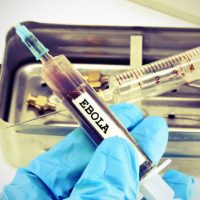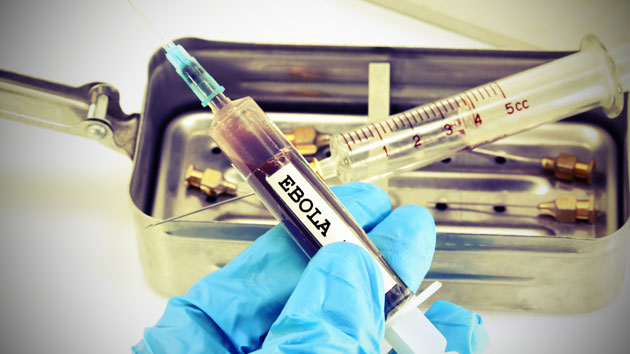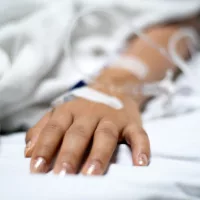
 iStock/Thinkstock(NEW YORK) — People who survive Ebola may suffer “severe” neurological and psychiatric problems long after they recover from the virus, according to a new study published Wednesday.
iStock/Thinkstock(NEW YORK) — People who survive Ebola may suffer “severe” neurological and psychiatric problems long after they recover from the virus, according to a new study published Wednesday.
Some cases of “post-Ebola syndrome” were so debilitating that the individual was left unable to participate in family life or even care for themselves, according to the study, which was published online at the Centers for Disease Control and Prevention’s Emerging Infectious Diseases journal.
“We knew that a disease as severe as Ebola would leave survivors with major problems,” said Janet Scott of the University of Liverpool, who co-led the research. “However, it took me aback to see young and previously active people who had survived, but were now unable to move half their bodies, or talk, or pick up their children.”
The devastating Ebola virus outbreak in West Africa, between 2014 and 2016, killed more than 11,300 people.
The researchers in this study looked at notes on more than 300 Ebola survivors in Sierra Leone, one of the nations most affected during the region’s epidemic. Of those, 34 patients who met neurologic criteria were then invited to take part in a joint neuro-psychiatric clinic in the capital Freetown in 2016. The group had full neurological examinations, psychiatric screening and specialist exams, including brain scans.
The depth of the patients’ psychological and neurological issues became apparent as the researchers analyzed the results. Many survivors still experienced a wide range of symptoms, including chronic migraines and stroke, as well as depression and anxiety.
“We found a broad set of neurological and psychiatric symptoms, from minor to extremely severe and disabling, are present in Ebola survivors well over a year after discharge from hospital,” said Patrick Howlett of King’s College London, a lead researcher on the study.
The most frequent neurological problems among the survivors studied were migraine-type headaches, stroke and nerve damage, while the most common psychiatric diagnoses were major depressive disorder and generalized anxiety disorder, according to the study.
“Our findings suggest that there is also a need for better understanding of the psychiatric and psychological consequences of Ebola virus disease,” said Stephen Sevalie, a psychiatrist at 34 Military Hospital in Freetown, where the clinic was based.
The study has shed new light on post-Ebola syndrome and the long-term effects the initial illness has had on these survivors’ lives. Researchers said the findings highlight a need for doctors with specialized training to help the remaining survivors.
“Our findings support the need for larger, case-controlled studies,” Scott said. “Post-Ebola syndrome is not going away, and those with the condition deserve better treatment.”
Copyright © 2018, ABC Radio. All rights reserved.















